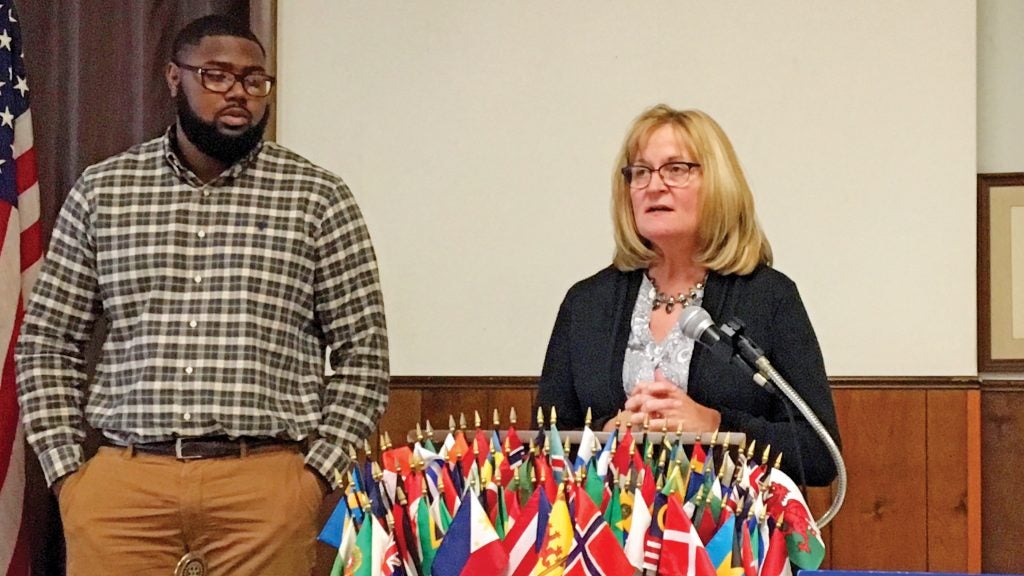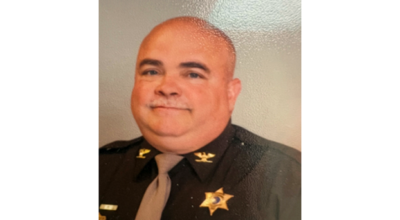Specialty court coordinators share success of program
Published 11:58 am Friday, November 10, 2017

- (Leader photo/TED YOAKUM)
Dowagiac’s Preston Collett knows better than anyone that sometimes, all someone needs is one more chance in order to become a better person.
Less than a decade ago, Collett was ensnared in the web of methamphetamine addiction, though he had been abusing drugs since he was 15 years old, when he began drinking, he said. His frequent drug use had not only cost him years of his life behind bars, but also the custody of his son.
“When I was in jail this last time, I thought all was lost,” he said. “I thought there was no hope.”
In June 2012, the man appeared in the courtroom of then Cass County Circuit Court Judge Michael Dodge to face punishment on his latest round of methamphetamine charges. The judge had the decision of either sending Collett to a nearly five-year term in a state prison cell, as recommended by the county prosecutor, or to admit him into the county’s drug treatment court — an intensive rehabilitation program designed to get habitual drug users like him to break the cycle of addiction once and for all.
“I remember Judge Dodge saying to me, ‘I’m going to take a chance on you,’” Collett said. “In my heart, I said, ‘I am going to put more into this than I ever have in my whole life.’”
Thanks his resolve and the efforts of the treatment court team, today Collett is nearly six years sober — and, most importantly, has been reunited with his son, who is now a 15-year-old high school student.
Collett, along with Barbara Howes, coordinator of the county’s Adult Treatment Court and Swift and Sure Sanctions Probation programs, and Clarence James, coordinator of the Family Treatment Court program, shared the positive impact that the specialty courts have made in the lives of former addicts during their presentation to the members of the Dowagiac Rotary Club Thursday at the local Elks Lodge. The trio was invited to speak to club by Rotarian and current Cass County Circuit Court Judge Mark Herman.
Howe said that county’s three problem-solving courts, along with its mental health court it runs in partnership with Berrien County, are a “different way of doing business,” compared to the usual method of punishing drug crimes, through incarnation and/or probation. Instead, the drug courts, which are funded through federal grants, combine intense supervision and intense treatment to rehabilitate criminals.
Enrollees are subjected to several drug tests every week, with officers going to them rather than vice-versa. In the event of a violation, probation officers, case managers and drug treatment officials working with the enrollee are all notified at once, so that the violation is punished straight away.
The carrot and stick approach to treatment is designed to break enrolls’ substance abuse addictions, which, along with trauma suffered earlier in their lives, is why many people become habitual criminal offenders.
“The addictions, crime and child abuse and neglect go hand-in-hand,” Howes said.
Since 2003, around 80 percent of offenders who are enrolled in the county’s specialty courts have successfully completed the program. Only 20 percent of graduates relapse into criminal activity, Howes said.
“We are really fortunate to have all these specialty courts,” Howes said. “We have a full continuum in this tiny county, which is not the norm.”
Collett, who now works with the courts as a certified peer recovery coach, thanked Howes, James and others involved in the specialty courts for the work that they do for those who are battling drug addiction, like he once did.
“These programs all work,” Collett said. “They [the court officials] put more effort into them than they ever get paid for. They work 24/7.”






